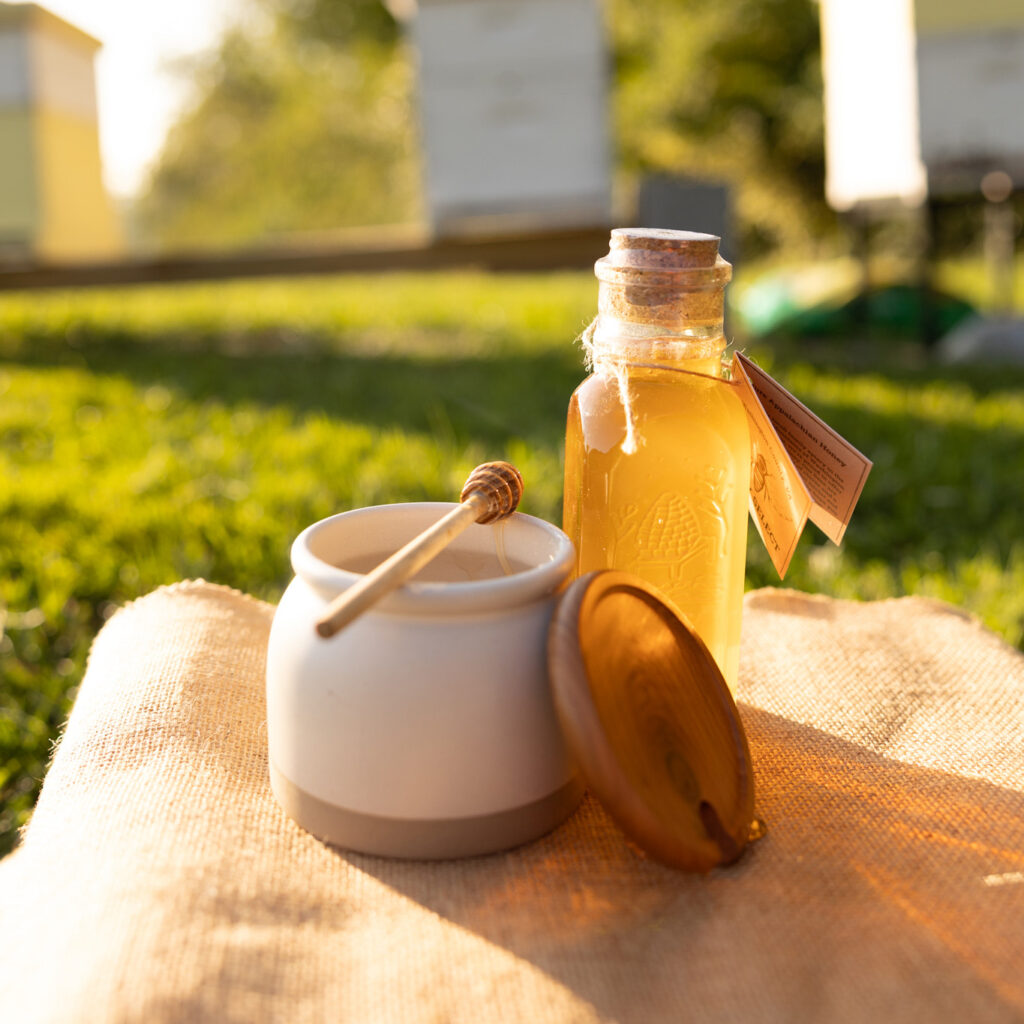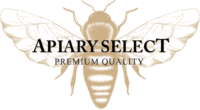
It’s important to us that you have all the facts about how we care for our bees, how we harvest their honey, and the process it goes through to get to your table. We call this Honey Transparency. There’s a lot of false advertising when it comes to honey, so we want to be clear about what we do, what we don’t do, and what you are getting when you uncork a jar of Apiary Select honey.It’s important to us that you have all the facts about how we care for our bees, how we harvest their honey, and the process it goes through to get to your table. We call this Honey Transparency. There’s a lot of false advertising when it comes to honey, so we want to be clear about what we do, what we don’t do, and what you are getting when you uncork a jar of Apiary Select honey.
Bee Care
Bee Care
As you’ve probably heard, honeybees aren’t easy to keep alive. A variety of ailments and parasites can wipe out colonies and keep that sweet, sweet honey out of your hot tea. Despite a plethora of folks who will say that “treatment free” bees will naturally find a way to survive the various pests and ailments that plague the honeybee population, science shows that to be false – at least in the short term. Because we want to be able to deliver as much honey as possible each year, and keep as many of our bees alive as possible, Apiary Select adopts a comprehensive integrated pest management program that includes a variety of measures to keep our bees at maximum health and production. These include a strong nutrition program and physical measures that prevent, trap, and kill common bee foes like varroa mites and small hive beetles. However, sometimes these pests, especially varroa, survive and thrive despite these measures.
We always try to minimize treatments, and so we regularly inspect our colonies to only treat when absolutely necessary – and never during honey production. In all cases, we only use natural treatments with compounds and methods approved by the Environmental Protection Agency. When we do need to provide treatments to keep our hives healthy, we rely on three types of treatment: formic acid-based, oxalic acid-based and hops beta acid-based. These are naturally-occurring (formic acid is even produced by bees!) and are approved, effective, and safe.
These measures ensure that our bees can keep making honey (and more bees!) and that Apiary Select can keep bottling that sweet, sugary nectar of the gods.
Honey Production
Honey Production
There are a slew of words that unscrupulous corporations will use to make money on honey and “honey”. “Raw”, “Unfiltered”, “Local”, “Pure” etc. Many of these words have no “official” definitions and so are used in ways that are misleading and, sometimes, downright false. Apiary Select holds honesty and transparency in the highest regard, so we avoid using those terms which are ambiguous, and are open about the terms we do use in our marketing. Here are some common claims and why we do or do not use them:
We use:
Raw: Raw honey is generally accepted to be honey which is not pasteurized, or otherwise heated to extreme temperatures. These process can change chemicals in the honey, and we don’t do that.
Pure: Some large corporations will adulterate their honey by adding things like high fructose corn syrup, other sugars, and water to their honey. We never add anything to our honey.
We don’t use:
Unfiltered: There is a huge variation in opinions on what is considered “unfiltered”. Most agree that they would prefer for naturally-occurring honey components like pollen and propolis to remain in the honey. Many believe these convey health benefits that can be lost via filtering. However, most people would also agree that they don’t want things like bee parts and chunks of wax that inevitably wind up in honey directly from the hive. At Apiary Select, we strain our honey through filters that are never smaller than 600 microns. Since pollen and propolis particles are typically 200 microns or less, our filters let most of the beneficial, desirable material through while making the honey a bit cleaner. Some other producers will call this process “filtered” while others will call it “unfiltered”. We just call it “the way we do things”. Many of the super large-scale producers will heat and add water to honey and force it through ultra-fine filters to remove pollen, propolis, and anything else that they don’t consider “clean”. We never do this at Apiary Select.
Local: The term “local” is often abused to label honey that is from hundreds or thousands of miles away. There is no clear definition of the term, and even honey consumers will have vastly different opinions on what is close enough to be considered “local”. So, we just let you know that our honey is produced in the Blue Ridge mountains of Washington County, Virginia. If that’s local for you, awesome. If not, it’s still damn good honey.
